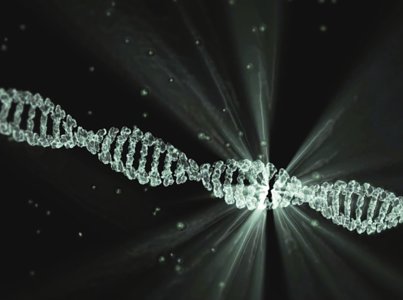A clinical study involves research using human volunteers (also called participants) that is intended to add to medical knowledge. There are two main types of clinical studies: clinical trials (also called interventional studies) and observational studies.
In a clinical trial, participants receive specific interventions according to the research plan or protocol created by the investigators. These interventions may be medical products, such as drugs or devices; procedures; or changes to participants’ behavior, such as diet. Clinical trials may compare a new medical approach to a standard one that is already available, to a placebo that contains no active ingredients, or to no intervention. Some clinical trials compare interventions that are already available to each other. When a new product or approach is being studied, it is not usually known whether it will be helpful, harmful, or no different than available alternatives (including no intervention). The investigators try to determine the safety and efficacy of the intervention by measuring certain outcomes in the participants. For example, investigators may give a drug or treatment to participants who have high blood pressure to see whether their blood pressure decreases.
Clinical trials used in drug development are sometimes described by phase. These phases are defined by the Food and Drug Administration (FDA).
In an observational study, investigators assess health outcomes in groups of participants according to a research plan or protocol. Participants may receive interventions (which can include medical products such as drugs or devices) or procedures as part of their routine medical care, but participants are not assigned to specific interventions by the investigator (as in a clinical trial). For example, investigators may observe a group of older adults to learn more about the effects of different lifestyles on cardiac health.
Here’s the link for studies inluded under the search term, “gene therapy.”
| Rank | Title | Status | Study Results | Conditions | Interventions | Locations | URL |
| 1 | Gene Therapy of Pancreatic Ductal Adenocarcinoma | Completed | No Results Available | Pancreatic Adenocarcinoma | Genetic: Gene Therapy product CYL-02 = plasmid DNA pre-complexed to linear polyethylenimine encoding sst2 + dck::umk genes | Toulouse Universitary Hospital (Rangueil), Department of Gastroenterology At Rangueil Hospital, Toulouse, France | https://ClinicalTrials.gov/show/NCT01274455 |
| 2 | EndocardialVascularEndothelialGrowth Factor D(VEGF-D)Gene Therapy for the Treatment of Severe Coronary Heart Disease | Completed | No Results Available | Angina Pectoris|Myocardial Infarction | Biological: VEGF-D gene transfer | Kuopio University Hospital, Kuopio, Finland | https://ClinicalTrials.gov/show/NCT01002430 |
| 3 | ADA Gene Transfer Into Hematopoietic Stem/Progenitor Cells for the Treatment of ADA-SCID | Completed | Has Results | Immunologic Deficiency Syndromes | Genetic: Gene Therapy|Drug: Busulfan|Drug: PEG-ADA | Investigational Site, Jerusalem, Israel|Investigational Site, Milano, Lombardia, Italy | https://ClinicalTrials.gov/show/NCT00598481 |
| 4 | Gene Therapy for ADA-SCID | Completed | No Results Available | Severe Combined Immunodeficiency Syndrome | Genetic: gene transduced PBL and/or gene transduced HSC | https://ClinicalTrials.gov/show/NCT00599781 | |
| 5 | Liver Transplantation With ADV-TK Gene Therapy Improves Survival in Patients With Advanced Hepatocellular Carcinoma | Completed | No Results Available | Hepatocellular Carcinoma|Liver Transplantation | Genetic: ADV-TK (adenovirus-thymidine kinase enzyme) gene therapy | Beijing Chao Yang Hospital, Beijing, Beijing, China | https://ClinicalTrials.gov/show/NCT00300521 |
| 6 | Gene Therapy for Gyrate Atrophy | Completed | No Results Available | Gyrate Atrophy | Procedure: Gene therapy | National Eye Institute (NEI), Bethesda, Maryland, United States | https://ClinicalTrials.gov/show/NCT00001735 |
| 7 | Clinical Study of AAV1-gamma-sarcoglycan Gene Therapy for Limb Girdle Muscular Dystrophy Type 2C | Completed | No Results Available | Limb Girdle Muscular Dystrophy Type 2C|Gamma-sarcoglycanopathy | Biological: AAV1-gamma-sarcoglycan vector injection | Hôpital Pitié-Salpà | https://ClinicalTrials.gov/show/NCT01344798 |
| 8 | Gene Therapy for Chronic Granulomatous Diseases – Long-term Follow-up | Completed | No Results Available | Chronic Granulomatous Disease|Communicable Disease | Drug: Gene Therapy Method for CGD|Device: Isolex 300i Magnetic Cell Selector | National Institutes of Health Clinical Center, 9000 Rockville Pike, Bethesda, Maryland, United States | https://ClinicalTrials.gov/show/NCT00001476 |
| 9 | Phase I Study of Ex Vivo Liver-Directed Gene Therapy for Familial Hypercholesterolemia | Completed | No Results Available | Familial Hypercholesterolemia | Procedure: gene therapy | https://ClinicalTrials.gov/show/NCT00004809 | |
| 10 | Gene Transfer Clinical Trial for LGMD2D (Alpha-sarcoglycan Deficiency) Using scAAVrh74.tMCK.hSGCA | Completed | No Results Available | Limb Girdle Muscular Dystrophy Type 2D (LGMD2D) | Drug: scAAVrh74.tMCK.hSGCA | Nationwide Children’s Hospital, Columbus, Ohio, United States | https://ClinicalTrials.gov/show/NCT01976091 |
